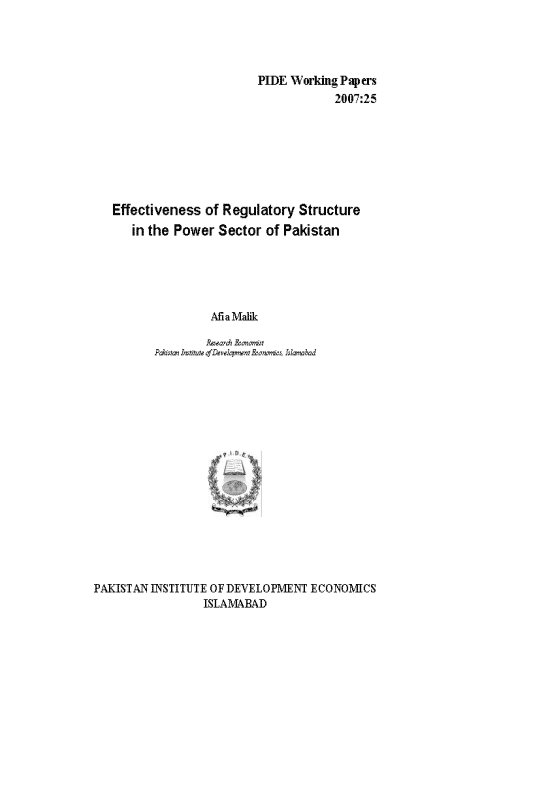Effectiveness of Regulatory Structure in the Power Sector of Pakistan
This paper is an attempt to study the regulatory environment in the electricity sector of Pakistan. NEPRA, a regulatory authority was formed in 1997 to protect consumer interests in the area of electricity provision, and to ensure an efficient and competitive environment for the electricity generators and distributors, but it has so far not been able to achieve anything. The power sector (dominated by WAPDA and KESC) is still affected by institutional and organisational weaknesses, with inefficient and non-optimal tariffs, high line losses, and high level of corruption. It has been found weak administrative governance in NEPRA in the form of lack of autonomy, resulting in the overall institutional inability to carry out the desired functions effectively. In addition, NEPRA is lacked in professional expertise to supervise and control the power sector and establish a rational and equitable pricing regime.




